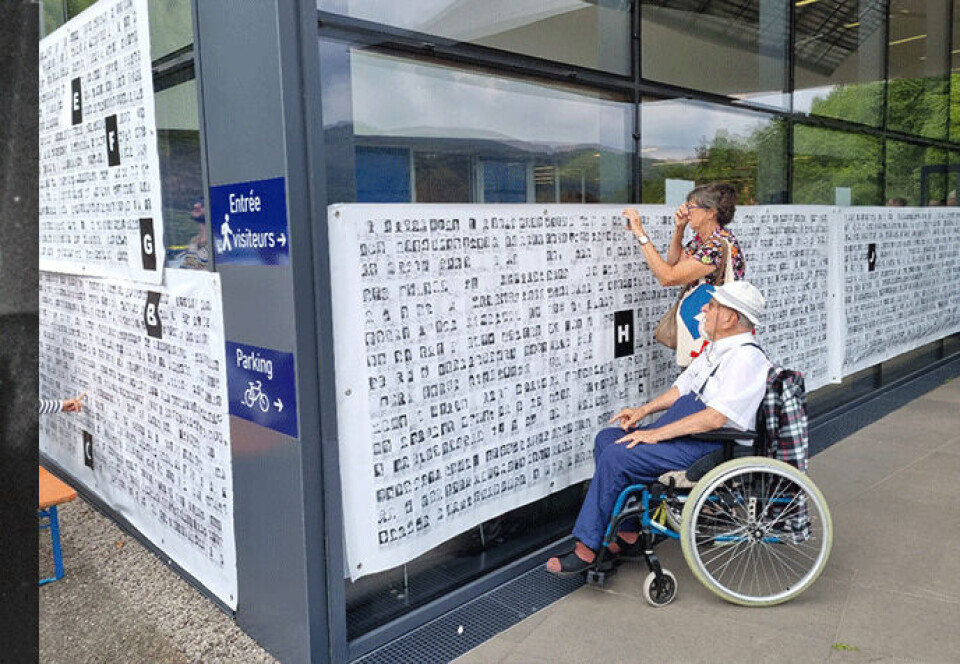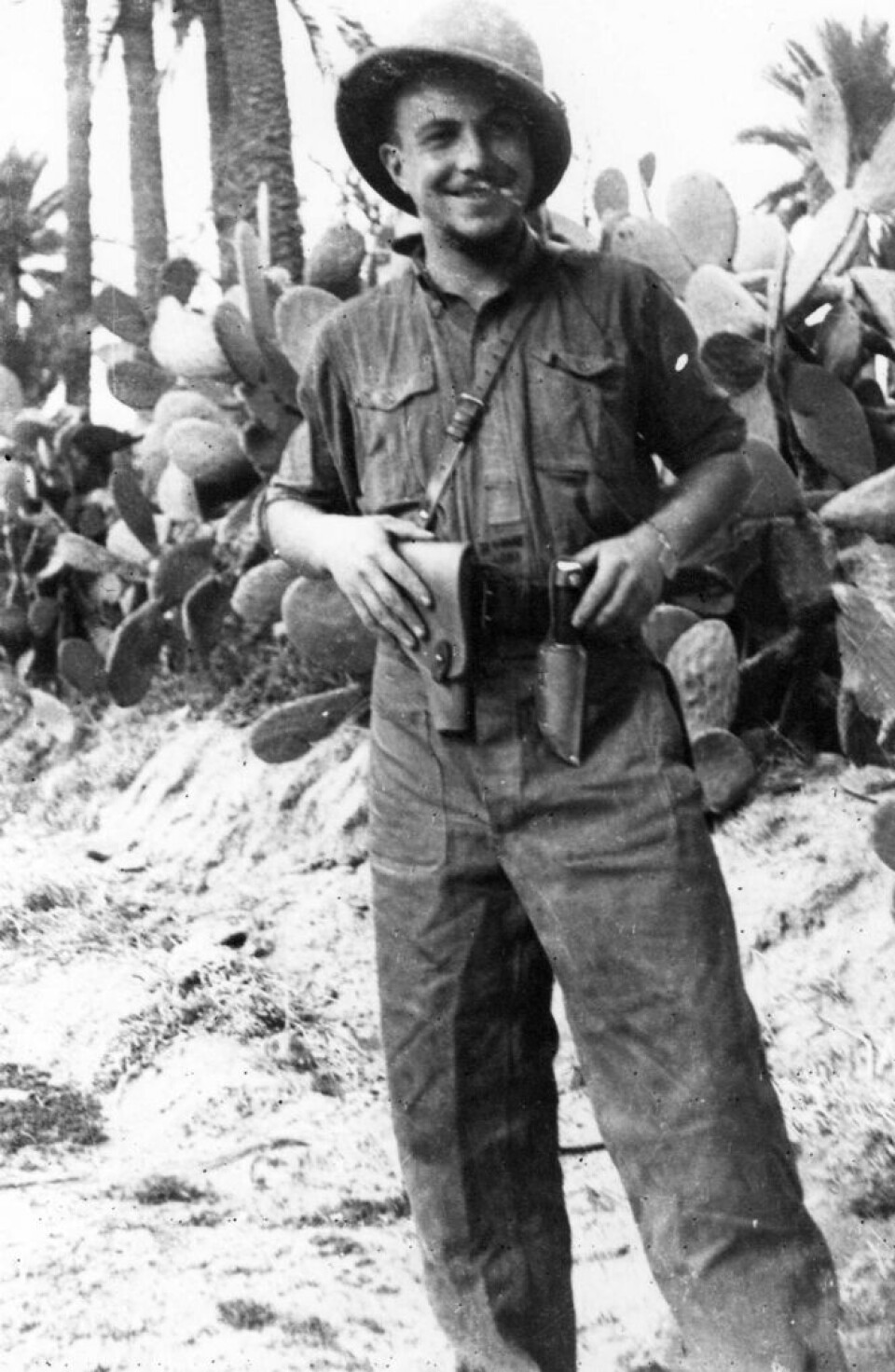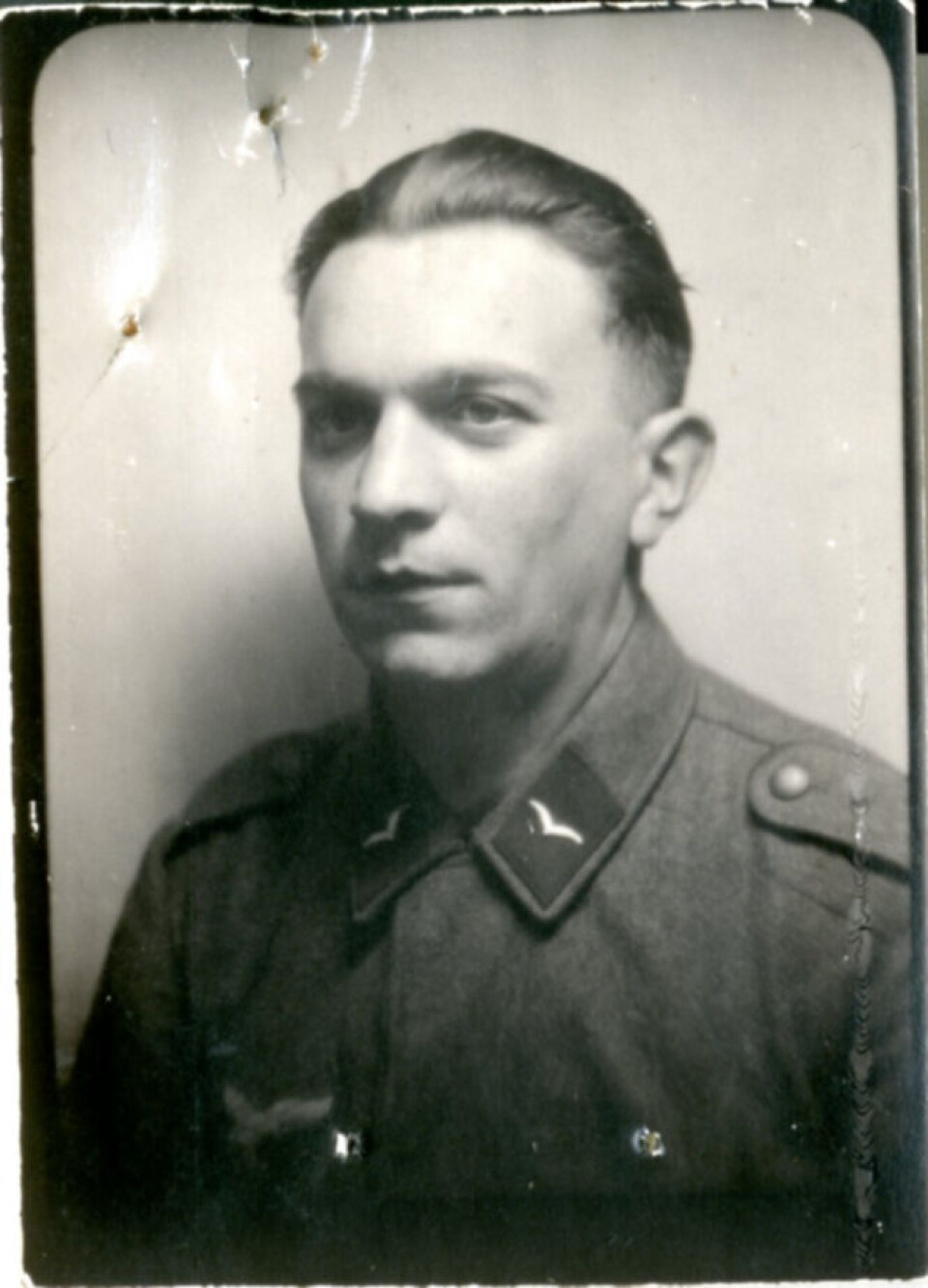-
White storks make strong return in France via nest ‘platforms’ and clipped wings
The Ligue pour la Protection des Oiseaux shares the conservation challenges in saving these birds from extinction
-
Hosting scheme in south-west France lets newcomers sample lifestyle
Households in nine Dordogne communes volunteer under Mes Nouveaux Voisins scheme
-
French boulangeries demand right for staff to work on May 1 so they can open
Artisan bakery owners can work but employees cannot, while certain industrial bakeries are allowed to remain open with workers
Descendants of Frenchmen forced to fight for Germany seek recognition
It is 80 years since a Nazi decree forced 130,000 men from Alsace-Moselle to join the German army during WW2

A decree published on August 25, 1942, ordered the conscription of young men from the annexed part of eastern France into the Wehrmacht and Waffen-SS.
Referred to as malgré-nous (despite ourselves), 130,000 men were drafted. Around 32,000 died and 9,000 more went missing. About 15,000 young women, dubbed malgré-elles, were conscripted into forced labour.
A number of ceremonies were held across Alsace for the 80th anniversary of the decree in August. In Obernai and Schirmeck, a 36 metre-long banner with the names and photos of 12,000 malgré-nous originally listed as missing was displayed.
Amateur historian Claude Herold, 66, trawled through photos of 1.3 million missing soldiers from the German army made available by the German Red Cross, and copied each one with an E next to it, for Elsaß–Lothringen (Alsace-Lorraine).
Three of Mr Herold’s uncles were forcibly conscripted – one died in Russia, another in Italy, and the third was declared missing in Poland – while his father’s cousin and three of his mother’s uncles also died.
“One of my uncles was first in the French army in 1940, and was drafted into the German army in 1943. Those who had been in the French army felt ashamed to wear the German uniform.

Ernest Herold pictured in a French uniform in 1940; he was later drafted into the Wehrmacht / Pic: Claude Herold

René Herold was killed in Italy and buried by New Zealander soldiers / Pic: Claude Herold
‘These young men had no choice’
“These young men had no choice. If they refused, their family was deported and their property confiscated.”
Gérard Michel, president of Les Orphelins de Pères Malgré-Nous d’Alsace-Moselle (OPMNAM), an association for descendants of malgré-nous, never knew his father.
He was drafted in November 1944, a month before the birth of his son: “My mother was heavily pregnant so he could not escape with her.”
OPMNAM was one of four associations to pay for the ‘wall of names’.
“When I was little, my grandmother would visit the Jardin de la Résistance in Schiltigheim, where there were the names of those who died in the Résistance. My dad’s name was written nowhere. It’s like they never existed.”
Wall of honour
There had been plans for a wall of names honouring all those from the region who died during the war to be built at the Alsace-Moselle Memorial museum in Schirmeck.
Following controversy over grouping the names of forced conscripts alongside those of Résistance fighters and deportees, the plans were shelved in favour of a digital monument which will provide more historical context.
Historian Frédéric Stroh, whose book Les Malgré-nous de Torgau traces the fates of those who resisted, said: “In Alsace, there is a feeling that the rest of France does not understand what the forced conscripts were.” Since the war, the malgré-nous have often been associated with the Oradour-sur-Glane massacre. In 1944, a Waffen-SS company destroyed a village in Haute-Vienne, killing 642. Among the soldiers were 14 Alsatians. Historians estimate that only around 2,500 people from Alsace-Moselle volunteered for the German army. Despite personal risk, around 40,000 people either escaped before being called up, or deserted once on the front line, Dr Stroh said.
“Too many people think this is a regional history, and it is not sufficiently integrated into the national collective memory,” he added.
Little interest elsewhere in France
“For the 80th anniversary, there were no commemorations on a national level, and historians from elsewhere in France take little interest.”
He believes, however, that the lack of understanding from La France de l’intérieur, as the rest of the country is referred to in Alsace-Moselle, has diminished over the years and is “overestimated by associations”.
In 2010, President Nicolas Sarkozy pronounced: “The malgré-nous were not traitors … they were victims.”
Alsatian culture not recognised
For Pascale Erhart, professor of dialectology at the University of Strasbourg, beyond the words of reconciliation, the “shock waves” continue to be felt in the struggle for Alsatian culture to be recognised. In local schools, children learn German, not Alsatian.
Read more: Five regions in France that have not always been French
“Only in Alsace does the dialect which is spoken not have the status of a regional language,” she said.
“Corsican is a dialect of Italian, but the Corsicans were not at Oradour. They don’t have the weight of this history.”
OPMNAM, meanwhile, is now focused on demanding more compensation from Germany than the 9,100 francs (€2,200) most malgré-nous received in the 1980s.
Mr Michel said: “All those who are buried somewhere in Poland or Russia still have German nationality and the uniform on their backs.
“We believe the Germans have a moral responsibility to compensate us as they would their own.”
Another of OPMNAM’s demands is for forced conscription to be considered a crime against humanity.
For Dr Stroh, this would blur the distinction between the malgré-nous and victims of genocide: “It risks putting everything on the same level.”
Related links:
Retired French soldier hunts down war grave thieves and Nazi relics
Teacher uncovers wartime heroism to save Jews in France
80 years ago: the Horrors of France’s concentration camp
























